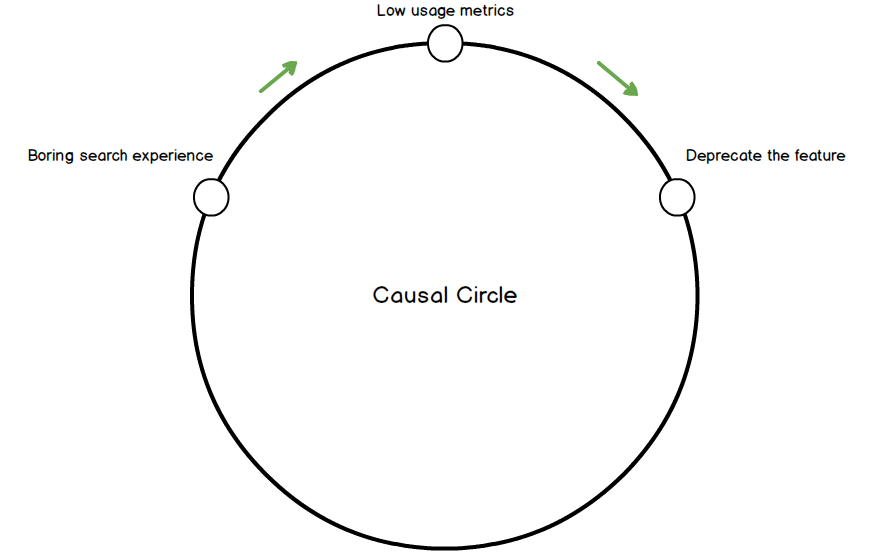I recently joined a discussion about removing the Search feature from our super app. The feature was removed a year ago due to low usage metrics. However, a powerful question was raised: what if the Search experience was simply too boring for anyone to want to use it?

Working in a product organization, we all want to make well-informed, data-driven decisions that deliver outcomes rather than just outputs. Data analysis helps us search for meaningful insights that can inform decision-making. These insights are often expressed in the form of cause-effect patterns. For example, if the usage metrics are low, we can consider deprecating the feature.
However, the quality of data greatly affects data analysis. Garbage in, garbage out. If the sampled data is biased, the results will be unreliable. Furthermore, if the search functionality is unengaging, the usage metrics will be low over time. As engineers, we know that our search functionality was initially limited to providing exact matches for recommending mini-apps. It was not as dynamic or engaging as a typical search experience, such as what you may find with Google.
The causal circle now looks like this image below.

It’s clear that in addition to deprecation, we have another option: improving the search experience. Why didn’t people see this new option back then? Are we any better now?
I’m not sure. In fact, it’s easy to mistake whether an event is a cause or effect. Building software is a process of acquiring knowledge, and there are always unknowns and mistakes during that process. Low usage of metrics was previously the cause, but now it’s the effect of something else.
One thing I know for sure is that involving more people in the decision-making process leads to better decisions. It’s critical to foster an open atmosphere when building a product. Engineers should not only be dictated what to do; instead, they should be empowered to be missionaries, not mercenaries. Missionaries ask “why” before removing a feature, while mercenaries do not. Missionaries help surface new knowledge, while mercenaries accept the status quo.
Choosing to be a missionary or a mercenary is a personal decision. While there’s nothing inherently wrong with being a mercenary, life is too short to build something that users don’t want.